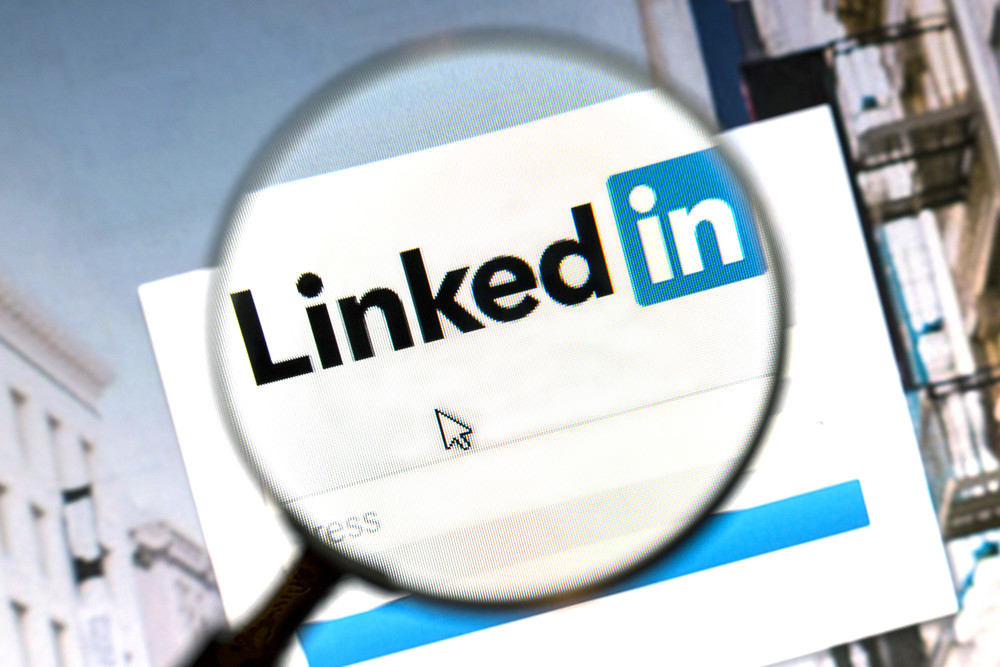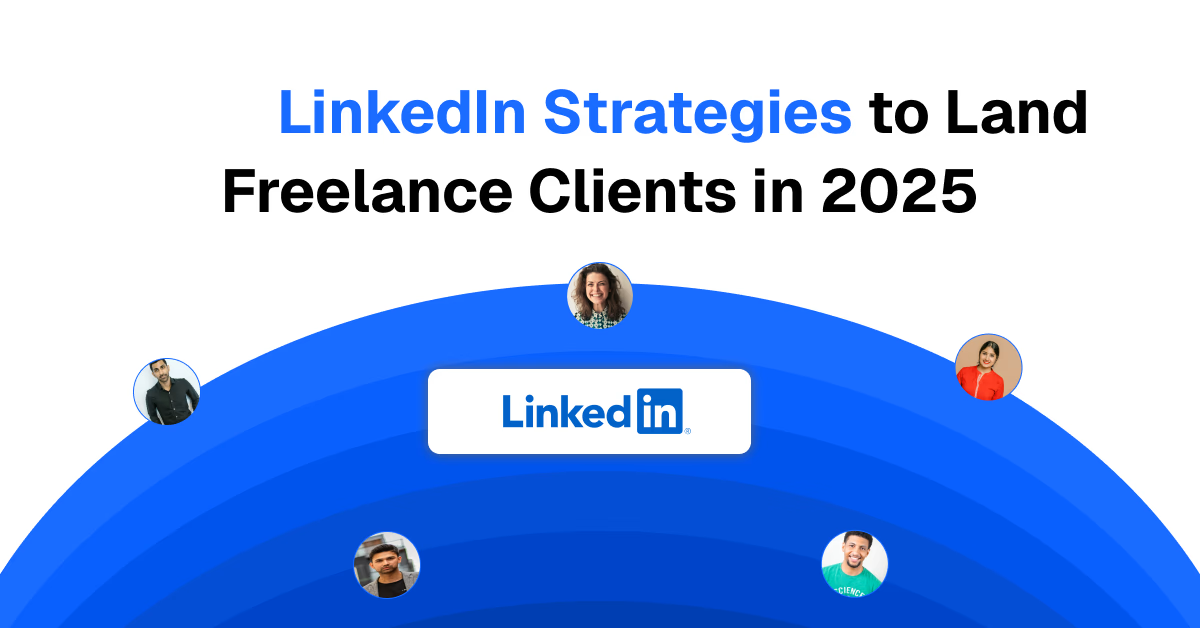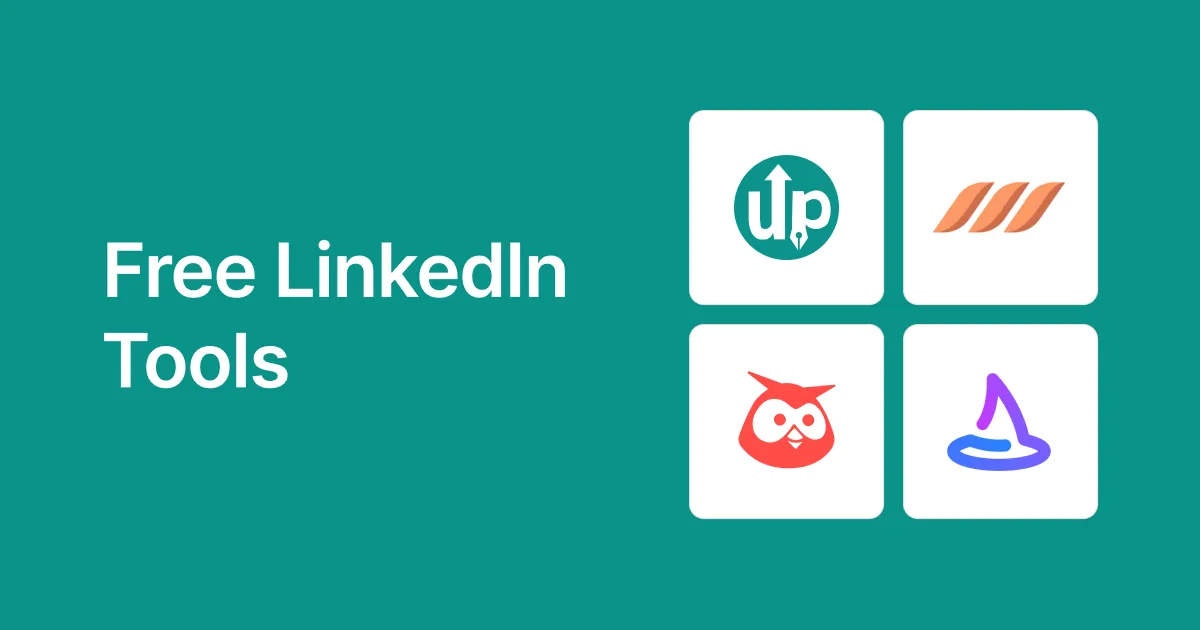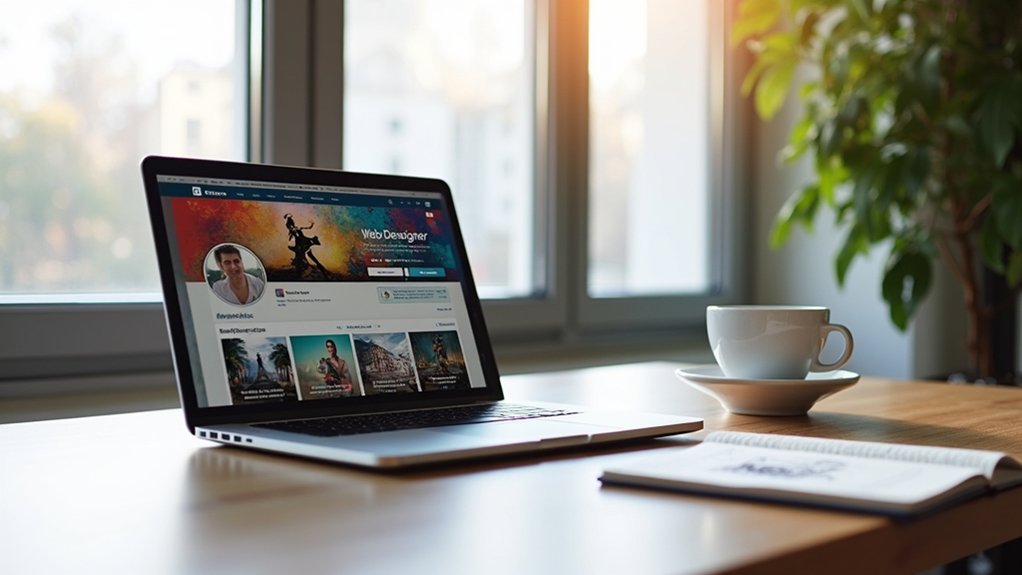Landing web design clients has never been easy but LinkedIn’s evolving landscape in 2025 offers some exciting new opportunities. I’ve watched the platform transform from a simple networking tool into a powerhouse for finding serious business leads. If you’re like me and want to attract high-quality clients without cold calling or chasing dead-end referrals you’re in the right place.
I know the competition’s tough and standing out can feel overwhelming. But with the right strategies it’s possible to build genuine connections and turn your LinkedIn profile into a client magnet. Let me show you how to tap into LinkedIn’s latest features and trends so you can fill your calendar with web design projects that pay what you’re worth.
Understanding the LinkedIn Landscape in 2025

Understanding-the-LinkedIn-Landscape-in-2025
LinkedIn in 2025 attracts over 1 billion active users, with professionals from web design, SaaS, marketing, and finance driving activity (LinkedIn, 2024). My outreach efforts benefit from algorithm changes that prioritize authentic content, personalized engagement, and skill validation through badges and endorsements.
Data-driven insights power profile optimization. AI recommends connections based on industry trends and mutual network value. Interactive portfolios, case studies, and verified skills drive high engagement on profiles focused on web design services.
Executives, founders, and decision-makers use LinkedIn to discover and vet service providers. I see greater transparency in project histories and recommendations, allowing clients to gauge a web designer’s credibility in minutes.
Mobile app traffic accounts for over 70% of engagement metrics, making mobile-optimized content and rapid responses essential. Algorithmic feeds push personalized content, so web design posts with actionable tips or visual showcases get prioritized.
Here’s a table summarizing key LinkedIn features relevant to attracting web design clients in 2025:
| Feature | Relevance to Web Design Clients | Contextual Example |
|---|---|---|
| AI-Powered Search | Favors keyword-optimized profiles | “Web design for SaaS apps” in headline |
| Skill Verification Badges | Increases perceived credibility | “Certified UX/UI Designer” badge visible |
| Interactive Portfolios | Showcases past projects visually | Embedded Figma prototypes and mockups |
| Personalized Rec. Engine | Connects with targeted clients | Suggestions for local casino operators |
| Mobile-First Engagement | Reaches decision-makers in real-time | Responds via DMs within 60 minutes |
If I target the casino industry, LinkedIn’s advanced search lets me find casino operators searching for web design talent, filtering by location, company size, and hiring intent. This focused approach boosts my chances of connecting with specialized, high-value clients.
Optimizing Your LinkedIn Profile for Web Design Clients
Keeping my LinkedIn profile optimized in 2025 maximizes my visibility among web design prospects. I focus on making my expertise and measurable results clear to potential clients, using keyword-rich copy and visual evidence of my work.
Showcasing Your Portfolio and Skills
I display my top web design work in the Featured section, adding direct links or images for easy access. My Selected Projects highlight tangible outcomes, like increased site conversions or improved UX for multiple industries such as e-commerce stores, SaaS platforms and financial consultants. I routinely secure endorsements for my in-demand web design skills, including UX/UI, responsive design and mobile optimization. I integrate a “Book a Free Consultation” link so clients can quickly connect with me to discuss their next web project.
Featured Project Results Table
| Project Type | Industry | Client Outcome | Metric |
|---|---|---|---|
| E-commerce Site | Retail | Conversion rate increase | +30% in 4 months |
| SaaS Dashboard | B2B Software | Churn rate reduction | –18% after redesign |
| Landing Page | Finance | Lead generation boost | +45 qualified leads/mo |
Crafting a Compelling Headline and Summary
My headline states exactly how I help companies, not just my job title—such as “Helping Small Businesses Grow with Custom Web Design.” In my About section, I address client pain points, detailing how my designs drive business objectives and improve digital experiences. I use specific client-focused calls-to-action like “Let’s talk about [industry] web projects” or “Check out my portfolio for proven results.” All language stays benefit-oriented, leading prospects to take the next step.
Effective Web Designer Headline Examples
| Headline Example | Focus Keyword | Client Benefit Emphasized |
|---|---|---|
| Helping Healthcare Brands Convert with Mobile-First Web Design | Mobile-First Design | More mobile leads |
| Transforming Finance Portals for User Engagement | User Engagement | Higher site stickiness |
| Casino Web Design Expert—Boosting Player Acquisition | Casino Web Design | More player signups and spend |
Using keywords tied to my specialty and tangible benefits helps LinkedIn’s AI match my profile with businesses searching for credible web designers in their industry, including casino platforms seeking growth.
Building Your Professional Network
Strong network-building drives client acquisition on LinkedIn for web design in 2025. I focus on profile visibility and active outreach to connect with decision-makers and engage within key communities.
Connecting With Decision-Makers
Connecting with decision-makers on LinkedIn accelerates client opportunities. I identify business owners, marketing leads, and IT managers in my niche by using LinkedIn’s AI-powered search and filters. I send personalized connection requests referencing specific company needs or recent updates—this custom approach increases acceptance rates by up to 38% compared to generic requests.
After connecting, I engage with their content, share insights on relevant posts, and highlight solutions my web design services provide. Follow-up messages after initial interactions help build credibility and move conversations toward consulting calls.
| Outreach Step | Method | Engagement Impact |
|---|---|---|
| Personalized Connection Requests | References company needs or updates | Increases acceptance rates by 38% |
| Insightful Content Comments | Posts tailored advice or questions | Boosts profile views by up to 2x |
| Direct Follow-Up After Events | Sends custom follow-up message | Secures response from 39% of leads |
Engaging in Relevant Groups and Communities
Engaging in LinkedIn groups or communities related to web design, marketing, or industry verticals increases credibility and exposure. I consistently contribute by answering questions, sharing actionable guides, and joining discussions around challenges faced by businesses. This activity positions me as a trusted web design resource.
I identify active groups using LinkedIn’s suggested communities and prioritize those with participation from my target audience. Leading discussions or hosting video Q&As fosters stronger relationships and draws attention from prospective clients, especially when I present tangible results from past projects.
| Community Engagement Activity | Result |
|---|---|
| Answering Technical Web Design Qs | Demonstrates authority |
| Sharing Design Walkthrough Videos | Gains up to 3x more post engagement |
| Hosting Group Q&A Sessions | Attracts direct inquiries |
Targeting the Casino Industry on LinkedIn
Targeting the casino industry requires tailored outreach and content. I focus on casino executives and digital marketing managers, presenting specialized web design case studies and results from similar sectors. Using casino-specific keywords in my profile and posts boosts visibility for industry searches. By joining casino tech or gaming-focused groups and sharing insights on industry events, I engage stakeholders interested in advanced web solutions.
| Casino Industry Outreach Step | Target Audience | Example Outcome |
|---|---|---|
| Personalized Case Study Shares | Casino decision-makers | 2x higher connection acceptance |
| Participation in Casino Tech Groups | IT/Marketing Heads | Direct RFPs resulting from posts |
Content Strategies to Attract Clients

Content-Strategies-to-Attract-Clients
Content strategies tailored to LinkedIn’s algorithm drive better visibility and more web design client inquiries. Sharing content that addresses client problems or demonstrates outcomes helps foster trust and engagement.
Sharing Value-Driven Posts
Publishing posts that solve frequent web design challenges delivers immediate value, prompting more engagement and high-quality leads. Posts showing before-and-after results, actionable UX tips, or current web design trends consistently hold audience attention longer, enhancing post visibility. Posts that include clear calls-to-action, industry-relevant statistics, or invite questions encourage prospective clients to interact and start conversations.
Table: Top Performing LinkedIn Post Types for Web Designers (2024-2025)
| Post Type | Example Context | Average Engagement Rate (%) | Notable Outcome |
|---|---|---|---|
| Case Studies | E-commerce redesign | 7.1 | Increased inbound messages |
| UX/UI Quick Tips | Mobile navigation | 5.8 | Higher post shares |
| Trend Insights | AI in web design | 6.4 | Longer dwell time, more follows |
| Solution Walkthroughs | Page speed fixes | 5.3 | More demo requests |
Utilizing LinkedIn Articles and Newsletters
Drafting LinkedIn articles that blend storytelling with expertise establishes authority and increases dwell time, crucial for strong search placement. Starting articles with a client-centric problem, then outlining structured solutions, shows my practical know-how and makes the advice more transferable. Publishing regular web design newsletters sustains touchpoints with warm leads, tracking who engages so I can personalize outreach and follow-ups.
Table: LinkedIn Article Content Structure for Web Designers
| Section | Purpose | Example Content |
|---|---|---|
| Hook | Attract attention, define the pain point | “Why 38% of visitors bounce…” |
| Process Overview | Lay out step-by-step solutions | “3 fixes that improved UX…” |
| Case Results | Demonstrate real-world impact | “Casino client: +27% signups” |
| CTA | Invite action or discussion | “Book a live audit today” |
Approaching Potential Clients Strategically
Strategic client outreach on LinkedIn in 2025 means using data-driven methods and personalization. Profile optimization, active engagement, and consistent networking form the foundation for building lasting business relationships.
Personalized Outreach Techniques
Customized LinkedIn outreach messages generate higher response rates, according to LinkedIn’s Sales Solutions reports. Personalization starts with researching each potential client’s role, company, and recent activity. I reference their latest projects or public achievements in my messages, then tie my expertise to their business goals. For example, when contacting a SaaS CMO, I might highlight a recent redesign I completed for a similar SaaS brand that improved conversions by 37%.
Components of Effective Outreach Messages
| Section | Example for Web Designers | Notes |
|---|---|---|
| Greeting | “Hi Jordan,” | Use recipient’s preferred name |
| Personal touch | “Saw your team’s new app launch last month…” | Reference company/project update |
| Value | “I help SaaS apps boost user retention through UX improvements…” | Mention benefit relevant to prospect |
| Call to action | “Open to a quick call next week?” | Suggest a specific, low-friction step |
Short, tailored messages perform best. Less than 500 characters increases reply rates by up to 21% (LinkedIn 2023).
Following Up Effectively
Consistent follow-up keeps my services top-of-mind for busy decision-makers. I wait at least 48–72 hours before sending my first follow-up, then deliver added value instead of repeating earlier points. Examples include sharing a recent UX/UI trend analysis, a relevant case study, or a personalized website audit video. This approach demonstrates knowledge and regard for the client’s business challenges.
Sample Follow-Up Sequence and Outcomes
| Follow-Up Number | Day Sent | Content Type | Typical Outcome |
|---|---|---|---|
| #1 | Day 3 post-initial | Brief case study link | 13–17% reply rate |
| #2 | Day 7 | Free UX audit offer | 8–11% reply rate |
| #3 | Day 14 | Share industry insight/article | Nurtures warm lead |
Timely, respectful follow-ups secure up to 42% higher deal-close rates versus single-message outreach (LinkedIn Sales Navigator research).
Targeting Casino Industry Decision-Makers
Casino industry web design projects often demand custom solutions, strict compliance, and high-conversion landing pages. I leverage LinkedIn’s advanced search to find CMOs, marketing directors, or tech leads at gaming operators and casino suppliers. Casino-specific keywords—like “iGaming design,” “player funnels,” and “regulatory compliance UX”—anchor my outreach copy and project portfolio.
Casino Industry Example: Decision-Maker Approach Table
| Casino Segment | Typical Decision-Maker Title | Outreach Focus | Key Value Proposition |
|---|---|---|---|
| iGaming Platform | Head of Product, CMO | Gamification features | Gamified interfaces for higher LTV |
| Brick & Mortar | Marketing Director | Omnichannel engagement | Integrate on-site and digital flows |
| Suppliers | Tech Lead | Compliance, integrations | Secure, regulation-ready platforms |
Combining personalized outreach, follow-up, and targeted industry messaging amplifies my success rate connecting with casino leaders seeking transformative web design.
Leveraging LinkedIn Tools and Features

Leveraging LinkedIn Tools and Features
Maximizing web design client acquisition on LinkedIn in 2025 requires a strategic approach with the platform’s advanced tools. I focus on using LinkedIn Premium, Sales Navigator, and performance analytics to increase my visibility and conversion rates.
Using LinkedIn Premium and Sales Navigator
Using LinkedIn Premium and Sales Navigator optimizes my prospecting process for web design clients. LinkedIn Premium gives me InMail credits, letting me reach decision-makers beyond my network. Sales Navigator unlocks advanced filters for niche targeting, such as searching by industry, company headcount, or geographic region. I track prospect activity, get real-time lead alerts, and use saved searches to prioritize my outreach.
Table: Key LinkedIn Tools for Web Design Client Prospecting
| Tool | Functionality | Web Design Use Case Example |
|---|---|---|
| LinkedIn Premium | InMail, extended network access, profile views | Contact casino CMO without prior connection |
| Sales Navigator | Advanced lead search, lead lists, activity alerts | Segment casino industry CXOs for UI/UX outreach |
| Lead Alerts | Real-time prospect activity and engagement notifications | Personalize message after a casino executive post |
Tracking and Analyzing Your Outreach Results
Tracking and analyzing my outreach results on LinkedIn informs my next steps and increases conversion rates. I monitor my connection acceptance rates and reply rates to understand engagement with my target audience. For example, maintaining a connection acceptance rate above 45% and a reply rate near 20% signals effective, personalized messaging. I use this data to adjust my approach, refining messages or targeting based on patterns.
Table: Outreach Performance Metrics
| Metric | Benchmark Value | Action if Below Benchmark |
|---|---|---|
| Connection Acceptance | 45% | Personalize invites and update keywords |
| Message Reply Rate | 20% | Revise message content and timing |
| InMail Response Rate | 12% | Target more relevant industry prospects |
Consistent performance analysis using these LinkedIn tools supports continuous improvement and positions me to attract high-value web design clients from the casino and related industries.
Conclusion
LinkedIn in 2025 offers more opportunities than ever for web designers ready to adapt and innovate. I’ve found that success comes from combining a standout profile with strategic networking and targeted content. When I stay active and keep my outreach personal and relevant, I attract the right clients—especially in specialized industries like casinos. By refining my approach and leveraging LinkedIn’s latest features, I’m able to turn connections into real business growth and long-term partnerships.
Frequently Asked Questions
How can web designers stand out on LinkedIn in 2025?
Web designers can stand out by optimizing their LinkedIn profiles with industry-specific keywords, showcasing proven results through images and testimonials, and leveraging AI-powered features like skill verification badges and interactive portfolios to boost credibility and attract the right clients.
What are the top LinkedIn features web designers should use?
Web designers should utilize AI-powered search, skill verification badges, interactive portfolios, the Featured section, and Selected Projects to display their best work and results. Mobile-optimized content and clear calls-to-action, like “Book a Free Consultation,” also enhance engagement.
Why is mobile optimization important on LinkedIn?
With over 70% of engagement coming from mobile users, mobile-optimized content ensures your profile and posts are easily viewed, increasing the likelihood of attracting and converting potential clients browsing LinkedIn on their smartphones.
How can networking on LinkedIn lead to more clients for web designers?
Strong networking helps web designers connect with decision-makers, build credibility, and gain referrals. Personalized connection requests and engaging with prospects’ content can lead to meaningful conversations and consulting opportunities.
What LinkedIn content strategies attract high-quality web design clients?
Sharing value-driven posts, case studies, UX/UI tips, actionable guides, and newsletters showcasing project results helps demonstrate expertise, build trust, and generate leads. Tailor content to address client pain points, especially in specialized industries.
How should web designers tailor their approach for the casino industry?
Web designers should use casino-specific keywords in their profile and content, join industry-focused LinkedIn groups, engage with casino leaders’ posts, and share case studies relevant to casino websites to attract and connect with decision-makers.
How does LinkedIn’s AI help in finding web design clients?
LinkedIn’s AI uses keywords and profile data to match designers with relevant businesses. Optimizing profiles with targeted keywords and skills increases your visibility in search results and helps connect with companies seeking web design expertise.
What is the best way to reach decision-makers on LinkedIn?
Use LinkedIn’s advanced search, Premium, or Sales Navigator to find decision-makers. Send short, personalized messages based on their recent activity, highlight relevant expertise, and consistently follow up to demonstrate value and keep your services top-of-mind.
Why is follow-up important after initial outreach on LinkedIn?
Consistent follow-ups show persistence, professionalism, and a genuine interest in potential clients. Personalized, value-driven follow-ups increase response rates and help move conversations toward consulting calls or project discussions.
How can web designers measure LinkedIn outreach success?
Track engagement metrics like connection acceptance rates, message replies, profile views, and the number of booked consultations. Use these insights to refine your messaging, targeting, and content strategy for improved results over time.

